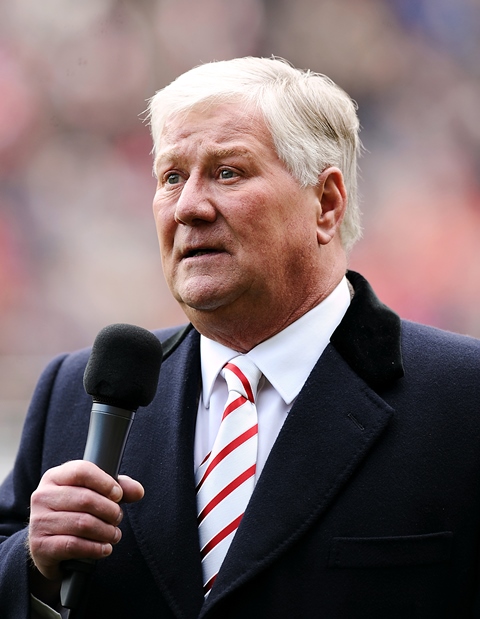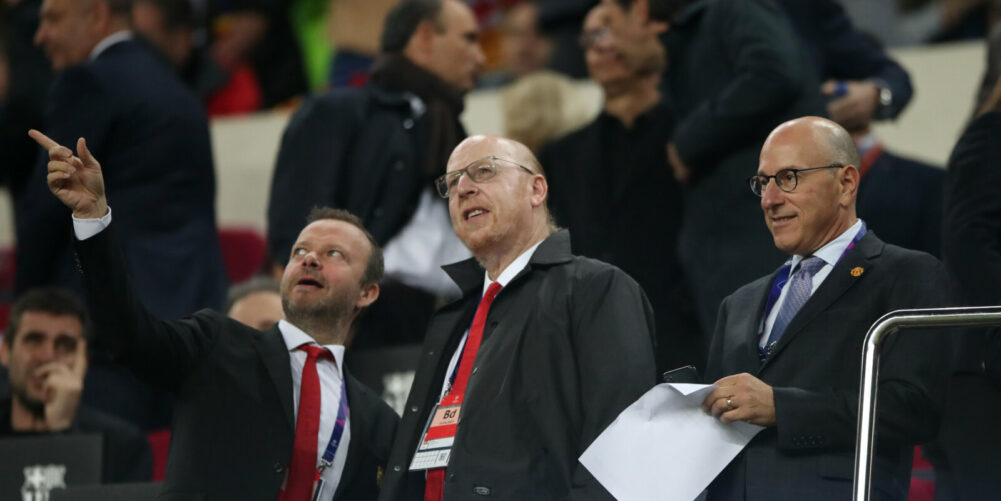ROTHERHAM chairman Tony Stewart says the EFL must “take a stand” against the Premier League to ensure long-term survival.
Clubs across the lower leagues are facing insolvency as a result of the Covid-19 crisis forcing games to be played behind closed doors.
In June, the Premier League agreed to provide the EFL with a financial ‘rescue package' in return for being permitted to complete their fixtures as part of Project Restart.
One such measure, formulated by EFL chairman Rick Parry in collaboration with the owners of Liverpool and Manchester United, would have provided EFL clubs with a £250m bailout, plus a 25 per cent share of all future TV deals, which would have been negotiated jointly.
However, this plan – dubbed Project Big Picture – was rejected out of hand at a meeting of Premier League clubs on Wednesday.
Clubs in League One and Two then rejected the offer of a £50m bailout, saying it fell “some way short” of expectations and – in failing to address the Championship – threatened the “unity” of the competition.
It is a stance applauded by Stewart, who says the EFL must now push for a permanent share of the Premier League wealth.
“The Premier League want to do a quick fix, a loan and a grant and things like this,” said the long-serving Millers supremo.
“But what the EFL are digging in for – and this is backed by all the divisions – is a permanent, long-term solution.
“It needs some rationalisation. Some in-depth thought. What we can't do is be rushed or have our hand forced. That's happened too many times during my 13 years at Rotherham
“The rules and regulations have gradually changed so that everything hinges on the Premier League. They are the dog's head and we are the tail. When they bark, we wag.
“There's lots of things the Premier League have dished out to the EFL, and we've sold a little piece of our soul every time. What we need to do now is take a stand.

“It has to be about more than covid and cashflow. We have to get some permanent structural changes. Without those, all we're doing is kicking the problem down the road.”
Specifically, Stewart wants a fairer distribution of wealth to the EFL, with around 70 per cent of the money currently filtered into the lower leagues going to relegated clubs in the form of parachute payments.
“The catalyst is obviously the covid situation, but what's happened is that it's brought wider issues to a head,” he said. “Namely, the big divide – the wealth of the Premier League, parachute payments and the way they pollute the Championship, League One and League Two.
“What's happened is that Rick Parry has decided to say ‘Ok, let's look at the problems in the EFL. Let's talk to the PFA. Let's get the Premier League and the FA involved and let's put things right once and for all'.
“It's really saying ‘While we get a fix on covid, let's look at all the problems. Not just now but in the future'.
“And the future is all about making sure that instead of Tony Stewart or Ben Robinson (Burton chairman) having to bail out football clubs, those clubs can be self-sufficient.
“It's essential, because when we're gone, who is going to be the next donor? And that is what we are. We're donors. We don't make money. We give it away, for the good of a town, a city, a community.
“Not many people want to do that, and that's a problem. Because if we get over this covid hurdle, there'll just be another hurdle down the road.
“At the end of the day, there's enough money to flood football with wealth. But it's all going to one end. I don't despise them for that. But it has to change for the good of the game.
“If they don't sort it, the Government will come in – and I don't think the Premier League will like that very much. The onus is on them.”
What the Football Supporters' Association's head of governance Ashley Brown says…
FOOTBALL has always generated surprises and this week's action was all off the pitch as football appeared to have descended into civil war.
According to mainstream media, the EFL chairman Rick Parry has crossed swords with FA chairman Greg Clarke and become an ally of at least two of the “Big Six” teams but not the Premier League as a whole, which put out an unprecedented statement criticising him. Meanwhile, amongst some EFL clubs he is being held aloft as a saviour of the league.
All of this is an unwanted distraction. If you are an EFL club struggling to survive, this smacks of fiddling while Rome burns. The Government, so readily handing out money to other sectors over the past six months, believes football must resolve its own financial issues.
Decoupling the desperately needed financial rescue of EFL clubs from the much-required strategic review of football governance, structure and solidarity should be the focus.
A fair rescue package for EFL clubs could be based on lost matchday revenues and drawn down periodically, with the potential for adaptation as percentages of fans return. It could be supported by soft loans to clubs who are able to comply to a simple set of financial checks, akin to the proposals from Damian Collins MP which have the FSA's support.
The intent is not to bail out the few reckless owners who have put clubs into tens of millions of debt, it is to fill the hole created by Covid-enforced shutdown of stadiums and keep our football clubs alive.
The beauty of Government intervention is that it does not require endless caveats in the way the Big Picture and EPL bailouts have. Both schemes expected clubs to sign away control and the future of our pyramid while the devil of bankruptcy is at the door and EFL clubs are desperate for money.
The only ask from Government should be that the football authorities come to the table for the promised fan-led review, announce the timetable and be clear that the review will be far-reaching and its findings acted upon. Buying that time is key, there's a lot to discuss, and all stakeholders need to be involved.
While the football authorities bicker, clubs wrestle for control and the powerful put together proposals in closed rooms believing only they know how to reform football, fans sit despairing, unable to watch their teams, and wondering if their club will still be there when the time comes for them to return.
The FSA has lobbied for years that football needs more independent regulation, and this has never been more apparent than in the last few days.
Throughout that time we have asked Government, the Premier League, EFL, FA, National League and other stakeholders to join us around the table to discuss and plan the future of football – maybe now they'll join us before Government forces them to.

















